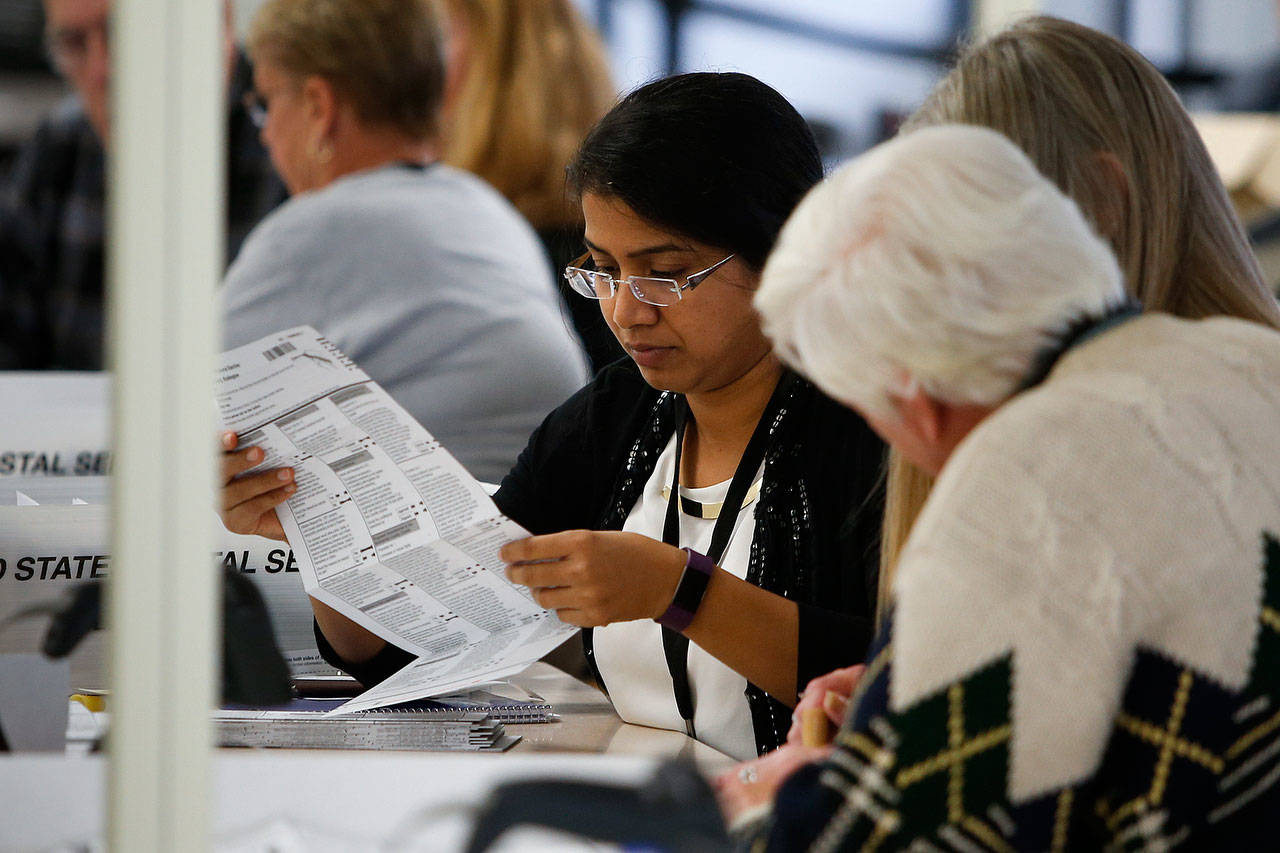By The Herald Editorial Board
Snohomish County Auditor Carolyn Weikel has two questions for voters in the county:
Did you get your mail-in ballot, one of about 460,000 that were mailed to registered voters last week?
And does it list the races and measures you were expecting for your precinct?
If the answer is no to either, call the county’s Elections Office at 425-388-3444.
Weikel’s questions come following varying degrees of anxiety among election staffs for the state’s 39 counties as a new statewide online voter registration system — dubbed VoteWA — gets its first real test during the Aug. 6 primary.
Delays in launching the new $9.5 million system meant that neither Secretary of State Kim Wyman’s office nor election offices in the state’s counties will have had the time to run tests that would put the system fully through its paces — from registration to tabulation — to address any glitches. And slowdowns and bugs already have been reported by many counties, as The Herald’s Jerry Cornfield reported earlier this month, concerns that were shared with state lawmakers during a hearing before the Senate’s election committee.
Along with slowdowns and maintenance periods when the system wasn’t available to accept voter registration information, some election offices have reported instances where the system appears to have dropped off some address information, such as apartment numbers.
Noting those problems, the loudest objections came from King County Auditor Julie Wise, who said the system wasn’t ready for an election, at least not one that counts: “We need to go through a mock election. We need to test the system,” she said during the hearing.
Weikel, in an interview with The Herald Editorial Board last week, shares her fellow auditors’ concerns, but does believe the system should be used for next month’s primary, fully ready or not.
Any new system, especially one involving software, computers and their interface, is going to have bugs to work through. More time for testing would have been ideal, but Weikel said, further delays would pose even bigger headaches as the state and its counties approach the general election in November and presidential-year elections in 2020, including a presidential primary that the state has moved up to March.
An off-year primary, which typically brings low voter turnout, may be the best chance to move forward, Weikel said.
Agreed: The improvements that VoteWA brings justify the-sooner-the-better decision to move forward.
Implementing state law, VoteWA will allow eligible residents to register to vote — or change their voter registration because of a move — up to and including election day, thanks to the switch to a statewide database that replaces registration systems that were managed individually by each county. Now, when a prospective voter registers, the system will flag information that shows if there’s a current registration in another county.
As well, the statewide system will be useful to county election offices as they verify their own records.
The new system should please those concerned about voter fraud as well as those who want to see registration and voting made as accessible as possible.
Washington state, following the efforts or lawmakers and Secretary of State Wyman to improve the state’s registration and election security measures, has been recognized as a leader in the nation. Wyman has discussed the state’s election security measures at national conferences, including protocols that assure that county vote-counting systems are “air-gapped” from the internet, better putting them out of reach of hackers, foreign and domestic.
Washington state was among 21 states the U.S. Department of Homeland Security determined had been targeted by Russian hackers during the 2016 election. The hacking attempts were unsuccessful in almost all instances; hackers did steal the voter registration information of some 500,000 people from one unspecified state that year. But as far as this state was concerned, Wyman said last year, the attempt was comparable to a thief rattling door knobs and window latches and leaving frustrated.
Another advantage Washington voters have — thanks to the state’s mail-in ballots — is a paper record that voters and election offices can use to verify votes if there is a question about results.
Such measures, while enjoyed in this state, aren’t standard across the nation, although they could be if the U.S. Senate voted to approve the Securing America’s Federal Elections Act, which the House adopted in late June. The act, along with allocating $600 million in Election Assistance Commission grants for states, would require a paper ballot or vote record, post-election audits and separation of tabulating systems from the internet.
Majority Leader Mitch McConnell, R-Kentucky, has blocked a vote on the bill, citing elections as the responsibility of individual states.
As Washington state has shown, elections can be left to individual states to ably administer, but financial assistance and enforceable security standards can only help secure elections in an era where meddling by foreign agents is a known threat to the most democratic of acts.
Talk to us
> Give us your news tips.
> Send us a letter to the editor.
> More Herald contact information.


























